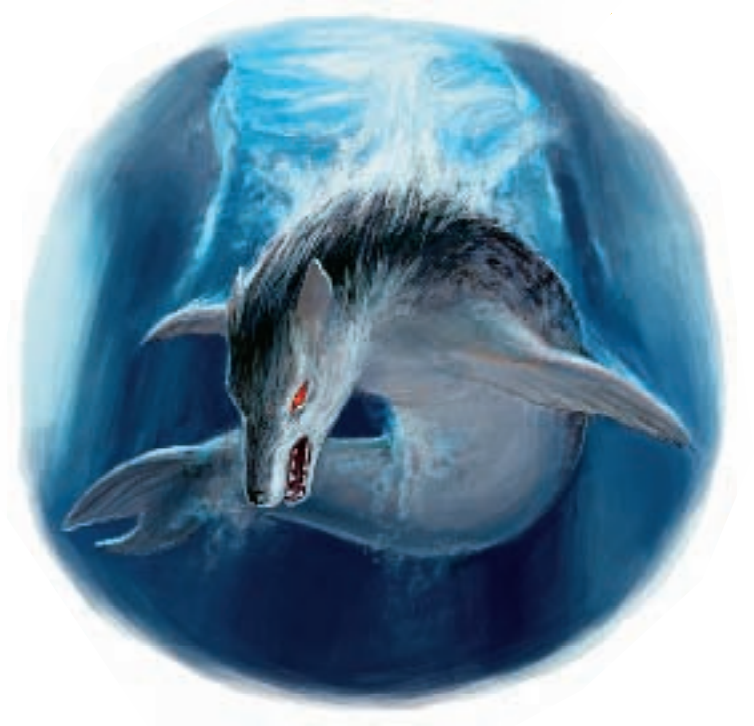Seawolves (5e Creature)
Seawolves[edit]Seawolves are a species of malignant shapechangers, and possible distant relatives of selkies, which they closely resemble in their hybrid form. In some legends, they are selkies cursed by Malar the Beastlord for overhunting, failing in their worship of him, or even as a reward for his worship. |
Like selkies, most seawolves live in simple social structures, sometimes called herds or packs. Each seawolf in a pack is equal to any other seawolf unless it proves itself to be superior either through might or trickery. Some, however, reside within coastal towns, such as those in the northern Sea of Fallen Stars or northern Sword Coast, for months or years at a time. These social seawolves are typically debaucherous sailors, spending their time sailing, drinking, wenching, or some combination of the three before covertly sailing the ship they serve on directly into the territory of their pack, killing everyone aboard.
Greater Seawolves[edit]
Greater seawolves are a subtype of seawolf that are more comparable to a dire wolf than a typical wolf, either having been blessed more greatly by Malar or as the result of generations of preferential breeding of mighty seawolves. There is roughly one greater seawolf to every five lesser seawolves. While seawolves are much larger and much greater swimmers, they are rarely seen on land, even to pursue prey.
Back to Main Page → 5e Homebrew → Creatures



